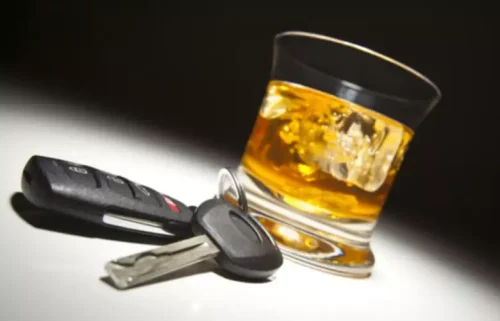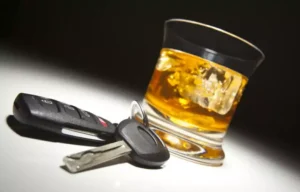
These co-occurring disorders may intensify withdrawal symptoms and require specialized treatment to address both the alcohol dependence and the underlying mental health issues. The alcohol recovery timeline generally progresses through several phases, each with its own set of physical, emotional, and psychological milestones. Understanding these stages can help in setting achievable goals, accessing the right type of care, and identifying when additional support might be necessary. If you are concerned about potential alcohol withdrawal symptoms, talk to your doctor. A doctor can evaluate your overall health and alcohol abuse history to help you determine how likely it is that you’ll experience symptoms.

Alcohol Recovery Timeline: Stages and Progress
This can be especially beneficial for individuals who may not have a strong support system in their personal lives or who may feel isolated in their recovery journey. Recovery podcasts can be a valuable resource for individuals on the journey to sobriety. These podcasts provide a platform for individuals alcohol recovery timeline to share their stories, offer advice, and provide support to others who are going through similar experiences. While some alcoholics progress through the first five stages of recovery in a linear fashion, many do not.

How Can I Tell If I Have An Alcohol Addiction?

Now serving as the Director of Human Resources since 2018, she leads our organization through the intricate requirements of recordkeeping, recruitment, staff development as well as compliance. If you are in a rehabilitation center, it is likely that you will be released somewhere during this time frame. You will have an aftercare plan that includes outpatient sessions and support groups. The specifics will depend on several factors, including where you live and the type of rehab center you are in. Speaking of healthy choices, it is important to make sure that you are eating regularly and drinking healthy beverages every day while you are in recovery.

How do you detox your liver?
- As the brain recovers over time, most people find that depression improves as well.
- Alcohol use disorder (AUD) is characterized by an inability to manage drinking habits, being consumed by thoughts of alcohol, and persisting in alcohol use despite negative consequences.
- Here are a few steps you can take to give yourself support and guidance throughout a month without alcohol.
- Remember you are facing a difficult challenge during alcohol withdrawal, but you are not alone.
- A person with this condition can have a very high heart rate, seizures, or a high body temperature.
Finding fun alcohol-free activities can help you distract yourself from alcohol cravings and build new routines. Quitting drinking can have many important benefits for your physical and mental health, but there are many other types of benefits you may experience as well. This does not mean that a mental health condition will necessarily go aware when you stop drinking but abstaining from alcohol use can improve your symptoms and lead to better treatment outcomes. Your Care Team wants you to succeed, and is dedicated to supporting you in making the best decisions for yourself.
Quitting alcohol timeline: What happens when you quit drinking for good
- You will continue learning healthy habits, including making connections and friendships that support a sober lifestyle and the benefits of exercise and a healthy diet.
- Eliciting positive self-talk and focusing on self-care are also recommended to avoid the ‘HALT’ feelings—hungry, angry, lonely, tired—that can precipitate a lapse.
- It’s important to remember that this is not the end of your recovery journey, and there are plenty of things you can do to help prevent a relapse.
- Looking for addiction treatment in Columbus, Ohio or the surrounding areas?
- Developing coping mechanisms, such as regular exercise, hobbies, and social support, plays a crucial role in maintaining motivation and avoiding high-risk situations.
In fact, an estimated one-third of people who receive treatment for alcohol issues are sober one year later, according to the National Institute on Alcohol Abuse and Alcoholism. If you have any of these risk factors, it’s important that you withdraw from alcohol at a medical facility that’s equipped to prevent and treat alcohol-related complications. A small percentage of people going through alcohol withdrawal have hallucinations at this point. There are many support options available that can help guide you through alcohol withdrawal, as well as abstaining from alcohol after withdrawal. Sexual function problems Halfway house are very widespread among heavy drinkers, including premature ejaculation and erectile dysfunction. Drinking in the region of two or more drinks every day increases the risk of colorectal cancer.
- Benzodiazepines, such as diazepam or lorazepam, are commonly prescribed to reduce the risk of seizures and alleviate symptoms like anxiety and insomnia.
- The timeline for brain recovery varies from person to person, depending on factors such as the duration and severity of alcohol use, age, and overall health.
- Some people with an alcohol addiction make their way through the stages of alcohol recovery in order, but more commonly, people bounce back and forth from one stage to another.
- The symptoms usually peak within 24 to 72 hours, but some can continue for several weeks.
They can also help you to stay accountable and on track with your recovery journey. It is important to remember that your support systems for sobriety are not meant to replace treatment or therapy. Instead, they offer additional help and guidance as you begin your recovery journey. There are lots of things you can do to help speed up the recovery process, including doing some form of exercise every day, eating a healthy diet, and practicing meditation or mindfulness. You can also find support from friends, family, and addiction professionals to help you through this difficult time.